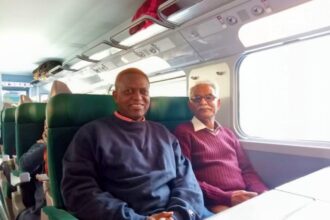The recent decision by the Economic Community of West African States (ECOWAS) to deploy military forces in Niger to restore democracy has sparked intense debate and concern. This move, which was met with resistance from Nigeria and other member countries, has raised questions about the efficacy of such interventions and the potential repercussions for the entire West African region. In this op-ed, in furtherance of the argument I made in Akweya TV’s interview with me, I further explore the reasons behind the call to abandon military intervention in Niger and advocate for a diplomatic solution that prioritises regional stability and cooperation.
The ECOWAS decision to intervene militarily in Niger under the guise of restoring democracy has triggered a wave of scepticism and criticism. This scepticism is not without merit, given the complex web of historical, cultural, and economic ties that bind the nations of West Africa together. The swift decision to deploy military forces overlooks the intricate dynamics and challenges that such interventions can engender.
Nigeria, like most member states of ECOWAS, is more than overstretched in the deployment of its armed forces in the face of ever-increasing internal security challenges.
It is crucial to acknowledge that the historical context of West Africa, particularly Nigeria’s relationship with its neighbouring countries, is vastly different from the situations in which military interventions were previously conducted. Nigeria’s role in leading the ECOWAS Stand-by Force, ECOMOG, during interventions in Liberia and Sierra Leone cannot be directly equated to the current scenario. These interventions occurred in a different political climate and were driven by different motivations.
In the case of Niger, the hasty prioritisation of military engagement overlooks the multifaceted nature of the crisis and the potential for irreparable damage to the regional cohesion that ECOWAS has been working diligently to foster. It is imperative to acknowledge the deep-rooted cross-border commonalities that exist between Nigeria and Niger. These shared environmental, ethnic, linguistic, and cultural ties have been harnessed to build a foundation of regional cooperation and integration.
ECOWAS’s commitment to Track II Diplomacy, characterised by cross-border cooperation and shared regional goals, must not be undermined by hastily executed military interventions. Diplomacy, with a strong focus on good governance, transparency, and conflict resolution mechanisms, offers a more viable and lasting solution to the challenges faced by Niger and the entire West African region.
The ECOWAS decision to militarily intervene in Niger raises crucial questions about the appropriateness and effectiveness of such actions in today’s complex geopolitical landscape.
While the military approach to conflict intervention may have been a conventional strategy in the past, the current global climate calls for innovative and holistic solutions. In the case of Niger, prioritising diplomacy is not a sign of weakness but rather a display of strategic foresight. The complexities of the crisis require nuanced and context-specific responses that take into account the unique dynamics of the region.
The potential consequences of military intervention in the border towns of Nigeria and Niger cannot be overstated. Trade, commerce, and social relationships that have flourished across these borders for generations could be severely disrupted, leading to economic downturns and social unrest. The delicate balance that has been achieved through years of cross-border cooperation could be obliterated by military action.
Nigeria, like most member states of ECOWAS, is more than overstretched in the deployment of its armed forces in the face of ever-increasing internal security challenges, and it would be too early in President Tinubu’s fledging administration to get Nigeria involved in armed conflicts with, especially, such strategic proximate neighbours as Niger.
Furthermore, the possibility of military intervention exacerbating the situation and degenerating into civil war cannot be ignored. The last thing the region needs is further destabilisation and conflict. The ECOWAS peace mission should include experts in conflict anticipation and pre-emptiveness to ensure that any actions taken are truly in the best interest of the people.

As ECOWAS navigates the path forward, it must heed the voices of its member countries and prioritise a diplomatic approach that aligns with the values of regional integration and stability. Nigeria, as a leading member of ECOWAS, can play a pivotal role in steering the regional body away from the path of military intervention and towards a more thoughtful, inclusive, and effective approach to conflict resolution.
In conclusion, the ECOWAS decision to militarily intervene in Niger raises crucial questions about the appropriateness and effectiveness of such actions in today’s complex geopolitical landscape. Advocates of regional stability and cohesion urge a reevaluation of this approach, favouring a diplomatic strategy that leverages the region’s shared history, culture, and goals. As West Africa faces an uncertain future, ECOWAS needs to rise to the challenge and demonstrate leadership in promoting sustainable peace and cooperation.
Anthony Ijaola Asiwaju
Emeritus Professor of History and Borderlands Studies writes from Imeko, Ogun State
Follow the AkweyaTV channel on WhatsApp: https://whatsapp.com/channel/0029Va7m7dvJuyA7h5XMc22i














